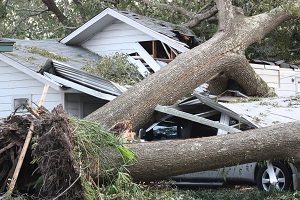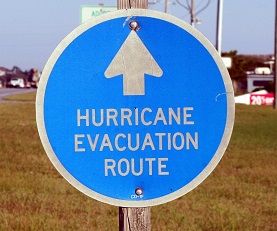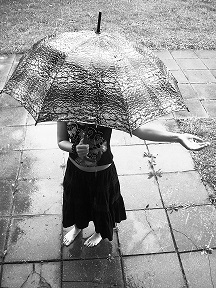Being calm in chaos: it’s something you may have witnessed from emergency responders, surgeons or traders on Wall Street. Maybe you admire their level-headedness. Maybe you’ve even thought Wow, I’d never be able to do that job.
And when any one of us thinks that way, we underestimate our own daily need to stay calm in times of chaos. There is a storm swirling around every one of us. Certainly, the winds are stronger and the debris more treacherous at times, but one thing’s for sure: Every day, you have a choice. You can choose to be swept up in the winds of the storm du jour, or you can stand in the eye of that storm with your feet planted firmly on the ground, your head straight and clear, and your body a hollow bone that channels light, love and healing.
Calm in Chaos: A Life Skill
I think many of us are shocked to learn just how much control negative circumstances and bad news have on us. We tend to internalize the external. We adopt others’ pain and allow it to adversely affect our own positive outlooks.
But there’s good news, too. You can learn to take action, to make change, without being consumed by all the negativity that’s swirling around you.
But first, it can help to find out how you’re currently responding to the storms that blow in.
Take this quiz to learn how much more work you have to do in order to be calm in chaos.
Your Calm-in-Chaos Quiz
Choose the answer that most honestly describes how you would respond — not how you think you should respond, but how you would act right now if any of these situations were to occur. Keep track of your As, Bs and Cs.
1. You turn on the news only to learn that a school shooting has occurred. Do you…
A. Blame someone and turn it off?
B. Watch the segment and decide to have a conversation about it with your kids when they get home?
C. Flip from station to station in a state of shock, while dinner burns on the stove?
2. You learn that your best friend is getting a divorce. How do you respond?
A. You told her not to marry that guy. Now it’s her problem.
B. You call her and make dinner plans. She’s probably going to want to talk, and you can be a shoulder to cry on if she needs it.
C. You send a moving truck to her house. You insist that she sleeps on your couch so you can protect her.
3. You’re having trouble paying your mortgage, and the house is about to go into foreclosure. Do you…
A. Call the bank that day and start a short-sale?
B. Sit down with your spouse and talk about your options?
C. Spiral into a new emotional pit of darkness every time a creditor calls for payment?
4. Your employer of 20 years is closing its doors and moving across the country. You have the option of following them or finding new employment. How will you decide?
A. Use only financial criteria to make your choice, based on whether it will be more lucrative to stay or go.
B. Make a list of pros and cons, including financial considerations, as well as things like moving away from family and transferring your kids to new schools with new friends.
C. There’s no way you’re moving, and there’s no way you’re finding another job. So you enter a state of grief and vow to track down the rat who’s responsible for this decision.
5. How do you feel when you’re experiencing empathy for a friend’s misery?
A. Wow, sucks for them.
B. I know what it’s like to love someone. I can imagine how much that hurts.
C. I’m going to take this pain from my friend because that’s the only way I can truly show him that I care. I must feel as miserable as he is in order for this to count.
6. There’s coverage of an earthquake’s aftermath on the news. How do you feel while you’re watching?
A. The power of nature is amazing. Planetary cleansing at its finest.
B. Oh, those poor people! I’m going right now to donate to relief efforts.
C. Is that a tremor? What if an earthquake hits here? Oh my God, we’re all dead.
7. How do you view happiness?
A. Something that’s not really necessary. Just move on.
B. As a wonderful high that perfectly contrasts against the lows of life. Happiness is a choice, and I choose to be as happy as I can in every situation.
C. I can’t possibly be happy when there’s so much death, destruction and division in the world.
8. Your nephew has been in a horrible car accident, and is in intensive care at the hospital. Many of your family members are in the waiting room, hoping to hear good news. How do you feel?
A. I wonder how long until a fight breaks out. We can’t all be in the same room together. I’m leaving.
B. What a strong, supportive family unit we have. Look at all these people who have come together to pray and channel light and healing.
C. What are we going to do if he dies? How can we ever make it through, and what kind of Universe would allow such a horrible thing to happen to a vibrant, healthy young man?
Now it’s time to tally your scores. Count how many As, Bs and Cs you’ve chosen.
Here’s how calm you tend to stay in chaos, based on your scores:
Mostly A: You are highly detached, and have most likely learned to avoid pain and discomfort by shutting out bad news. This is a form of self-protection, and it’s likely that a life event has caused you to choose this path. Yes, you are calm in chaos—because you refuse to admit that a storm is raging. Seek out empathy training. Choose happiness and togetherness. You don’t know what you’re missing.
Mostly B: You are well-balanced and level-headed in chaos. You have deep connections with people and The Universe, and you have the ability to stand firm in the midst of a storm, without being swept up in it. This is the right state of mind to start taking action and to create change.
 Mostly C: When bad things happen to you, to other people, or in the world around you, it’s all the same. You feel helpless, tossed around in the chaos, and unable to find the light. These things seem to pile up around you and as soon as one storm is finished, another seems to appear. It’s time to understand that you’re not solving problems by becoming a part of them. Practice being objective in the sense that with a clear, level head, you can make better decisions. Only when you become grounded and calm can you be a channel through which good things flow.
Mostly C: When bad things happen to you, to other people, or in the world around you, it’s all the same. You feel helpless, tossed around in the chaos, and unable to find the light. These things seem to pile up around you and as soon as one storm is finished, another seems to appear. It’s time to understand that you’re not solving problems by becoming a part of them. Practice being objective in the sense that with a clear, level head, you can make better decisions. Only when you become grounded and calm can you be a channel through which good things flow.
Of course, not everyone will fit snugly into one of these three categories. You can, however, get a sense for how much work you have to do based on your results.
Speaking of work, I’ve got all the resources you’ll need to get it done.
I suggest you start by listening to my podcast The Eye of the Hurricane: How to be Calm in Chaos. In it, you will be introduced to the skills you’ll need to start observing and creating win/win situations, instead of being swept up with all the other junk in that storm.
We would love to hear what you learned about yourself through this Calm-in-Chaos Quiz. Are you already an EOBeing, or an Essence of Being graduate, and can see the difference this skill has made in your life? Or are you now thinking of registering for Essence of Being, in order to learn to maintain spiritual and mental calmness in chaos?
Either way, meet me at the Essence of Being, Inc. Facebook page. A link to this blog will be posted there, so you can comment on it. Or, visit essenceofbeing.com to learn more about the program.







